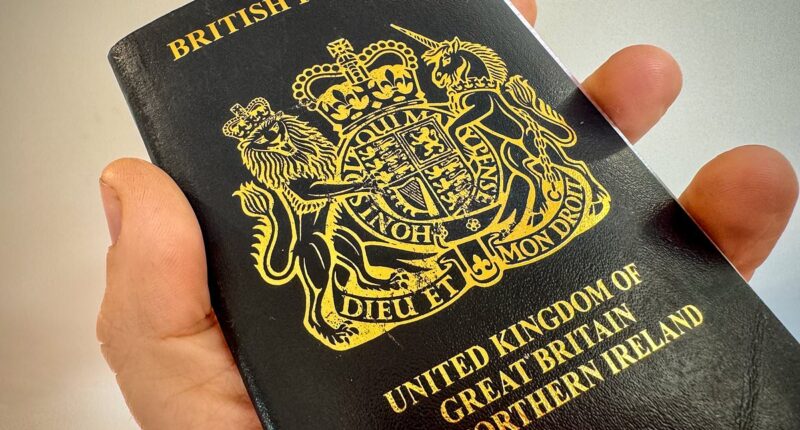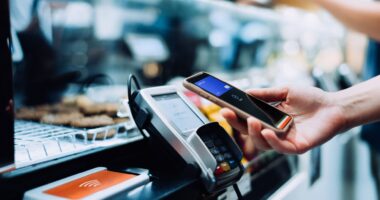International travel is set for a major shake-up as smartphones will be able to hold a digital version of the British passport by 2027.
British citizens will soon have the option to store important documents like their passport and driver’s license on their mobile phones through a digital wallet application. This new government app is scheduled to be released by the end of this year.
It will initially only be for domestic use, but could eventually be used for international travel, subject to agreements.
Finland was the trailblazer in digitalizing passports, allowing its citizens to travel to the UK using their phones as part of a test initiative. Following in their footsteps, the UK is now introducing a similar system to streamline document management.
Peter Kyle, the Technology Secretary, spearheaded the launch of the governmental app. He emphasized that this initiative marks the initial phase of tailoring services to meet the specific needs of individuals, aiming to enhance efficiency and convenience.
‘The key function you want from the passport is being able to travel with it without constantly being worried you forgot your passport,’ he told The Times.
‘But it’s not dependent on Britain, it depends on the country you’re travelling to. So we’re keeping a close eye on international standards.
‘When those standards become clearer, then, of course, you have a Government that would aspire to be able to benefit from it as much as possible.’

The digital version of the British passport will initially only be for domestic use, but could eventually be used for international travel, subject to agreements (file image)


Brits will be able to save important documents, such as their passport and driving licence, onto their phone using a digital wallet app
The digital ‘wallet’ will initially be launched in June with a veteran’s card, followed by a pilot of driving licences.
And then in 2027, a hub for all government credentials will be available – including birth certificate, national insurance number, power of attorney, marriage and DBS certificates and rights to work or rent.
The wallet will make use of security features already built into modern smartphones – such as facial recognition – for protection.
But those who still like their little plastic card need not worry, as physical documents will remain available, the Government said.
Ministers hope the app will also make using services – like applying for childcare or reporting a lost passport – far easier.
It will also allow digital credentials to be accessed immediately following a successful application, rather than waiting for them to arrive in the post.
In addition, it will help to avoid valuable documents being lost in house moves or behind filing cabinets.
Asked whether asylum and immigration status would form part of the wallet, Mr Kyle said ‘nothing is off the table’.

The digital ‘wallet’ will initially be launched in June with a veteran’s card, followed by a pilot of driving licences (stock image)
The new app has caused concern for privacy campaigners. Silkie Carlo, director of Big Brother Watch, claimed it had all the ‘hallmarks of the nightmare database state envisaged with Blair’s failed ID card system.’
He went on to label the proposal an ‘incredibly sensitive, intrusive and a honeypot for hackers’.
Mr Carlo said: ‘The government should modernise and give people digital options with identity documents, but this approach risks actually narrowing our choices and control over our own data.
‘That’s because, despite our campaign, the government is inexplicably refusing to legally protect the right to use non-digital ID, and hasn’t set out whether we can control how much of our sensitive information will be available via this wallet.’
Derek Gordon, a digital identity expert at the cyber security company NCC Group, also feared that cramming all our personal information onto our phones gave cyber criminals ‘another access point’ to steal our personal information.
If thieves were able to get their hands on these details, they could be used for identity theft, to commit fraud, or resold on the black market, he said.
In response to these claims, Mr Kyle said there were ‘no plans to make it [digital wallet] compulsory’. He also stressed that those who cannot access the internet would not be ‘left behind’.

















